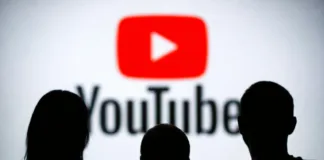My Own Legacy with Venezuela
I have deep roots in Venezuela, a country I am proud to be connected to. My great-great-great-grandfather fled the French Revolution and made his home in Maracay. From there, my lineage unfolded in waves of resilience and service: my great-grandmother was a poet and women’s rights advocate at a time when women couldn’t vote; my grandfather, a courageous attorney, defended children who were victims of clerical abuse when no other firm dared challenge the Church. My father was a naval captain, shot in the head resisting dictatorship, and later became an ambassador to Iraq and Lebanon. My uncle Adolfo spent his life in diplomacy, negotiating environmental treaties across the globe.
These stories of courage and commitment are emblematic of the Venezuelan spirit—a testament to a people who, despite adversity, strive for justice and progress.
Nicolás Maduro: Defender of Sovereignty or Authoritarian Leader?
“The U.S. empire is in historical decline and no longer has anything to offer for the good of the people of Latin America and the Caribbean.”
— President Nicolás Maduro
President Nicolás Maduro, the successor of Hugo Chávez, portrays himself as the legitimate and democratically elected leader of Venezuela. He blames much of the country’s economic hardship on what he calls “sabotage” by the United States and a campaign of imperialism that has sought to destabilize his government. He insists he has won elections fairly and repeatedly, supported by the nation’s official electoral council.
Maduro maintains that his government seeks peace and stability, attributing the nation’s economic hardships to external sanctions and internal sabotage. He emphasizes the importance of defending Venezuela’s independence against what he perceives as imperialist aggression.
María Corina Machado: The Resistance Lives On
María Corina Machado offers a completely different vision. A former engineer and legislator turned human rights advocate, she entered politics to fight for the rights of children and women. Over time, her courage and unwavering voice elevated her to the status of Venezuela’s most prominent opposition leader.
Machado was disqualified from running in the most recent presidential election by government decree. But her determination didn’t stop there. She mobilized a volunteer network that collected vote tallies from electoral centers across the country—building a parallel count that showed opposition candidate Edmundo González had decisively won.
“He lost in a landslide to Edmundo González, 67% to 30%. I know this to be true because I can prove it,” Machado declared, citing receipts obtained directly from more than 80% of the nation’s polling stations. CNN
Despite being under threat, she continues to broadcast her message of democratic renewal through underground networks and encrypted communications, becoming a symbol of resistance not just in Venezuela, but globally.
Two Futures, One Nation
Today, Venezuela stands at a fork in the road. One path leads through continued authoritarian rule under the narrative of sovereignty and resistance against foreign meddling. The other imagines a return to democratic institutions, global engagement, and domestic healing.
Who defines Venezuela’s future? Is it the sitting president backed by state power and foreign allies, or the insurgent hope represented by a woman fighting with nothing but truth, data, and faith in her people?
And perhaps more importantly, what do we owe a country that gave us stories, values, and legacies like my own?
This article is part of 3 Narratives. Two sides. One story. You make the third.
Sources


